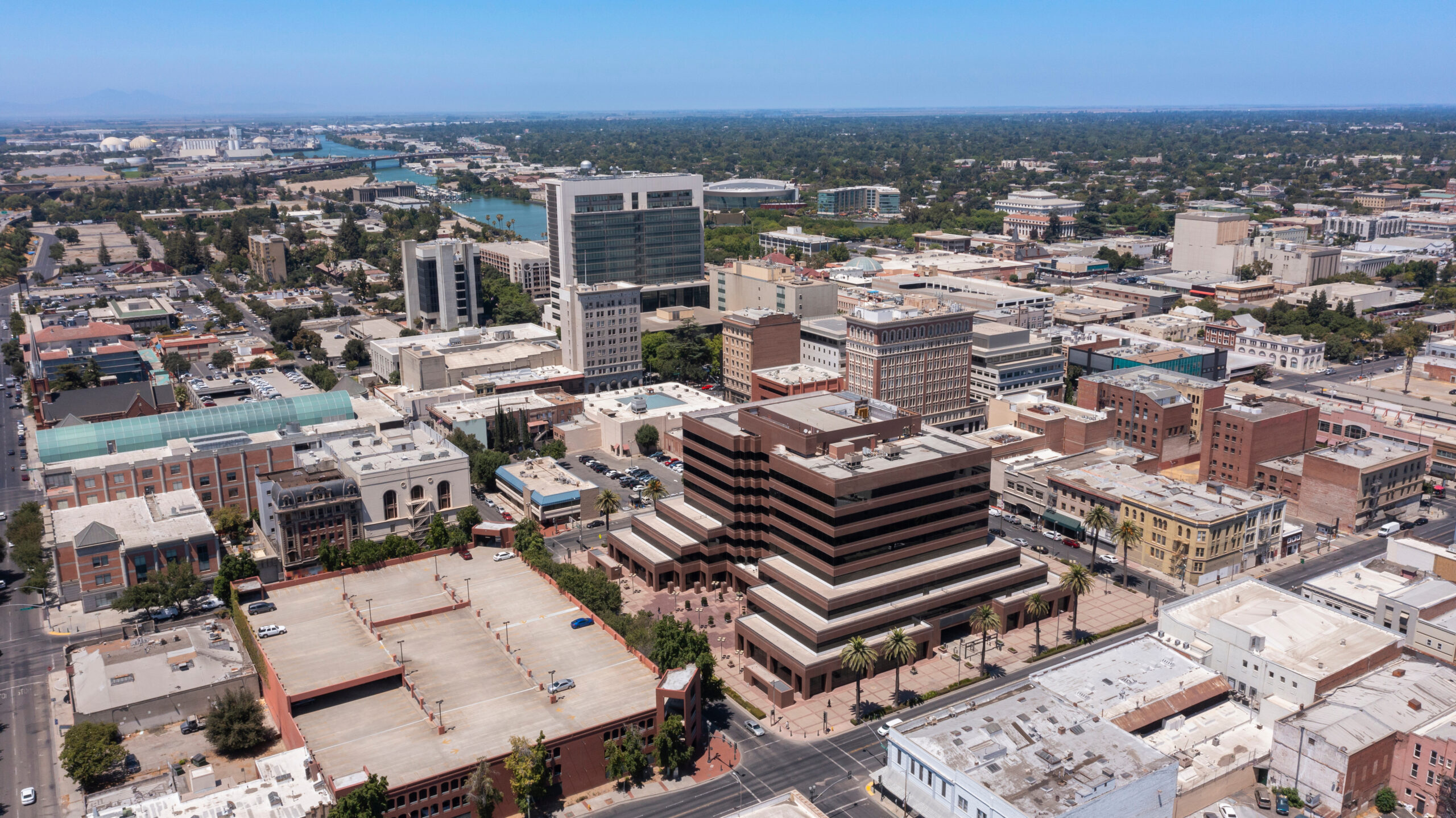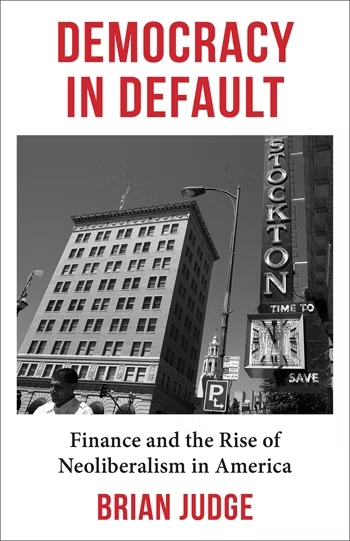
Neoliberalism benefits from a mostly uncontested origin myth about how neoliberal economics came to dominate economic policy. Its adherents claim neoliberalism was a project to unleash capital in response to rising inflation and unemployment combined with a falling rate of profit brought on by state interference in the national economy. Its opponents argue neoliberalism is the story of the white middle class and big business seeking emancipation from a state moving toward an egalitarian and inclusive social order. On this account, neoliberal ideology is only a thin veil for the material interests of capital.
Critically, neoliberalism’s champions and challengers agree that neoliberalism was an intentional project that largely succeeded on its own terms. In other words, it was instituted by design.
Brian Judge takes exception to that account. As the title of his new book, “Democracy in Default: Finance and the Rise of Neoliberalism in America,” alludes to, Judge, a political scientist who serves as a policy fellow at the Center for Human-Compatible AI at UC Berkeley, argues that the neoliberal reign is characterized by a political environment in which financial actions become the default response to political conflict over distribution of resources.

On the afternoon of December 10, BESI welcomed Judge for an interactive seminar centered around the thesis of his book. Ahead of the seminar, Judge circulated to attendees the second chapter of his book, which argues provocatively that runaway inflation in the 1970s was not the result of the state’s over-involvement in the economy, but rather the result of conflicts over newly scarce resources. Examining the crises of the 1970s as well as other instructive historical case studies — including the bankruptcy of Stockton, California, and the 2008 subprime mortgage crisis — through this lens, Judge finds that since the 1980s liberal democracies have turned again and again to finance as a way to depoliticize distributive conflict, often to their peril.
“Liberalism is premised on depoliticizing these conflicts rather than resolving them,” Judge told a group of more than 20 researchers. “The entire order is premised on avoiding overt questions of valuation and power.”
Judge’s main goal in the talk was to show that policies that traditionally fly under the neutral banner of “economics” function as the suppression, naturalization, and neutralization of political conflicts about the distribution of collectively-produced resources. Additionally, Judge aimed to convince participants that, in his words, “financialization is not the byproduct of neoliberal deregulation but rather the crucial mechanism for explaining how the transformations comprising ‘neoliberalism’ are actually enacted.”
What’s the payoff of this reinterpretation? Judge explained: “By putting the ‘liberalism’ back in ‘neoliberalism,’ we recognize the set of political economic transformations comprising neoliberalism are not explained solely by a class project to restore the supremacy of capital — though, of course, such a project existed. It shifts the frame from capitalism to liberalism — from the internal dynamics of capital to liberal democratic governance.”
He continued: “If the problem is capitalism, then it is resolved by placing the economy under political control. I am suggesting instead that the central problem is the possibility of political control itself. Places where we see democracy in control of finance are not especially encouraging. We should not imagine that after four-hundred years of liberalism we already have a ready-made alternative.”
Additionally, “more democracy is not an ipso facto antidote to neoliberalism,” said Judge. “We need to address the political problems to which finance is the solution.”
To kick off the discussion portion of the seminar, BESI invited Sarang Shah, a Ph.D. candidate in Political Science at UC Berkeley, to share his response to Judge’s book.
Opening up the discussion to the group, Shah’s challenged participants to propose a solution to the problem “Democracy in Default” poses. Paraphrasing political theorist Sheldon Wolin, Shah noted that “the political subject of today is unsuited to the rigors of democratic self-governance, especially thanks to decades of neoliberal rationality hiding distributional conflict, emphasizing growth, and prizing individualism.
“We are left to wonder,” Shah continued, “how do we cultivate such a democratic subject? If it is not through democratizing our most powerful institutions, such as finance, as the conclusion of ‘Democracy in Default’ suggests, then what would it be? It is challenging to conceive of a future world without finance, neoliberalism, and above all, liberalism.”
About the Speaker

Brian Judge is a political scientist and policy fellow at the Center for Human-Compatible AI at UC Berkeley. His book, “Democracy in Default: Finance and the Rise of Neoliberalism in America,” which offers a bracing new account of the relationship between neoliberalism and financialization, was published in March 2024 by Columbia University Press. Judge has a Ph.D. in political science from UC Berkeley and a B.A. in philosophy from Brown University.

